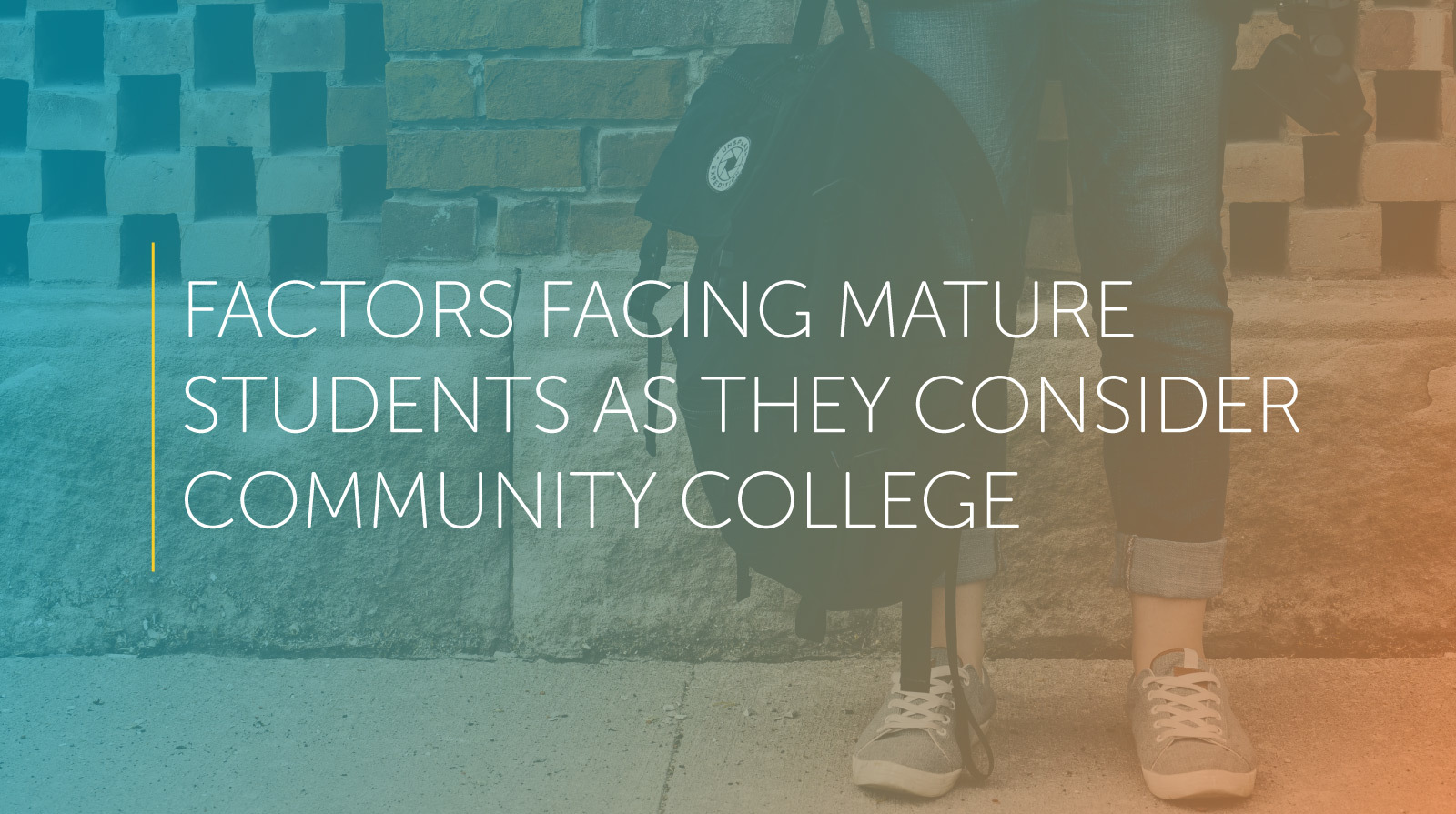Charting a course to success for low-skill and working adult students
Adult learners bring incredible diversity into classrooms across America. Their variety of life-experiences and perspectives, their determination to succeed, and their work-ethic make them model students in many ways. However, these mature students also face special challenges. They need support dealing with new technology, financial issues, and intergenerational classroom dynamics.
Adult learners make up a large part of the student body at community colleges, and so whether they succeed or fail will impact these schools’ enrollment goals and financial targets. Community colleges and non-traditional students succeed together when schools understand how best to serve this important demographic.
Community Colleges are an important resource for adult learners
A study from the College Research Board shows that community colleges are a key resource for adults returning to school. In 2011-12 about 44% of first and second year undergraduate students in the public two-year sector were older than twenty-five. This is more than double the percentage of older students in the public four-year sector, which served only 20% of students over twenty-five. The percentage of full-time adult students in the public four-year sector was even lower, only 10%, a third of the number of full-time mature students in the public two-year sector.
Although community colleges are not the only institution serving adult learners, they are often the first choice for returning students looking to pick up new job skills or obtain a degree. Both affordable and friendly to working students, community colleges appeal to returning adult learners. In turn, adult learners provide a large part of the tuition dollars that community colleges need to keep functioning each year.
Adult learners need help picking up the pieces
Returning adult learners often have had some previous college experience. The difficulty is how to best fashion it to support their new academic goals. Obtaining decades old transcripts can be difficult, and even once the official copies are delivered the courses may not be up to the institution’s transfer standards. However, mature learners are highly motivated and returning to school with clear objectives in mind. Whatever missteps they’ve had in the past, with the right support they can flourish in an academic setting.
Admissions officers should encourage adult students to request old transcripts that could reduce the credit load they have to take to complete a degree. Even just helping adult learners find the right number to call at their previous institution can make the process easier. The credit transfer process should also be as simple as possible. Otherwise, adult learners lose time and money re-taking courses they’ve already had.
Adult learners need wrap-around support services
Adult students are likely to be financially independent from their parents, and so assuming the entire financial burden of college. NPR reports than half are financially independent, and 1 in 4 have their own children to support. Because of this, they may need more vertical support from advisors, teachers, and financial aid counselors, as well as additional services like technology classes or childcare assistance.
How well a community college can provide this kind of support will have a measurable impact on whether these students thrive. Of course, colleges are financially limited in what they can do. Yet, a student who is older without a ride to school, or childcare, or a home computer is bound to struggle with completing assignments. If your institution can proactively work with students to confront these challenges, they are more likely to matriculate.
Financial aid makes a difference to adult students
A longitudinal study of community colleges in Washington state showed that adult students enrolled in community colleges were more likely to earn a credential or complete at least 45 credits when they received financial aid. However, the same study showed that less than a majority of low-skill adult learners received this kind of support. This meant more returned to the workforce without the additional earning power a community college could provide.
Other adult learners might be returning to school to retrain for a new job after years in the workforce, when they’ve suddenly lost a long-term job. With their own retirement looming, it can be difficult to know how to factor in student loans or pay for courses. Having a financial aid staff that understands the special challenges that older students face, from paying for courses to planning for retirement, is an important part of supporting mature students.
Adult learners worry about navigating relationship with younger students
Adult learners might be anxious about participating in study groups or other peer learning opportunities. Joining a classroom with much younger students, especially those that seem adept at the kinds of academic tasks that mature students find intimidating, can be very difficult. In fact, fear of humiliation can keep adult learners from forming invaluable student-to-student relationships.
However, teachers can help draw mature learners into the classroom experience. Their life-experience enriches classroom discussion and their mature perspective and determination to succeed can motivate younger students. With the right encouragement, older and younger students can develop mutually beneficial relationships.
Community colleges succeed when adult students succeed
Adult learners are a critical part of the community college student body. To continue to meet enrollment goals, community colleges must be appealing to adult learners. Doing this means showing that the school understands the kind of support these students need. Every interaction with admissions staff and financial aid officers should leave returning adult learners feeling satisfied that the school can help them overcome the unique kinds of challenges they face.
However, the college needs to communicate this message to prospective mature students long before they arrive on campus for a visit. We believe the best way to do this is by providing clear and informative content that engages prospective students and the community at large. This is the best way to attract adult students in today’s competitive college marketplace. If you want to know how your college can do this economically and effectively, request a demonstration of our services today.


